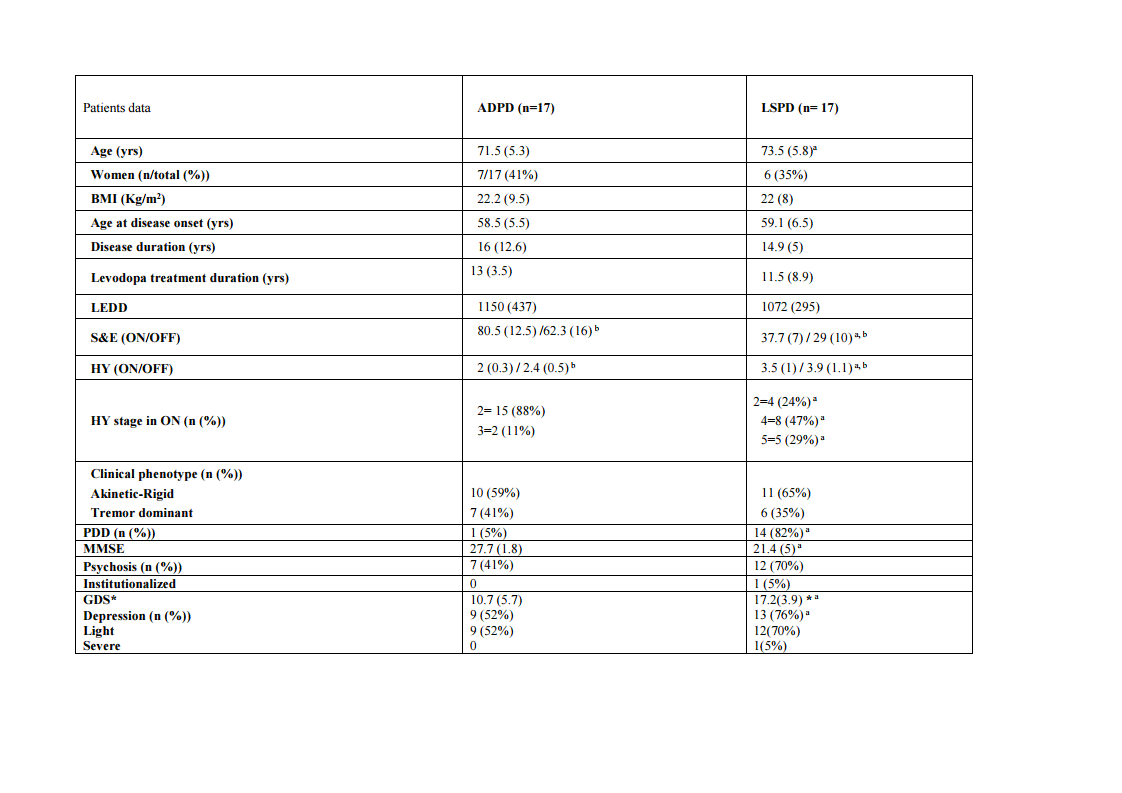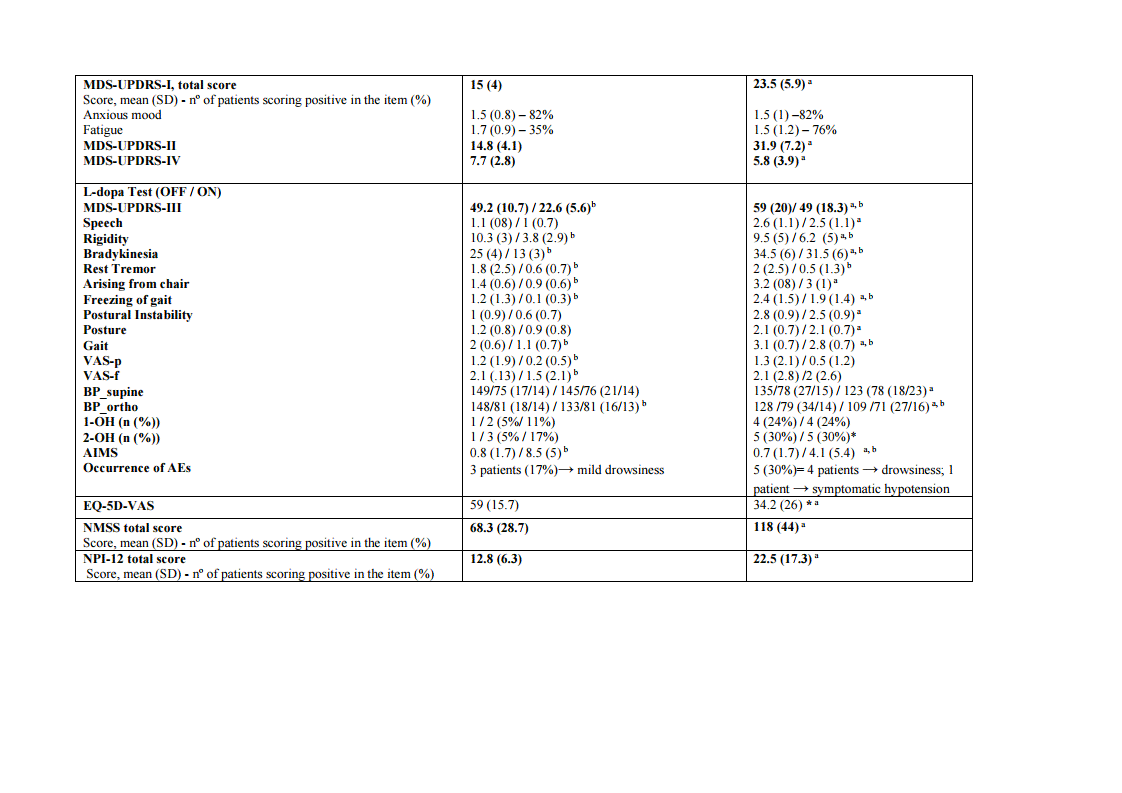Session Information
Date: Tuesday, September 24, 2019
Session Title: Parkinsonisms and Parkinson-Plus
Session Time: 1:45pm-3:15pm
Location: Agora 3 West, Level 3
Objective: To compare the response of motor and non-motor symptoms (NMS) to a L-dopa challenge test between late stage (LS) PD patients and advanced stage (AD) PD patients.
Background: L-dopa efficacy on PD cardinal motor symptoms may decrease with disease progression. If so, a simplification of drug therapy regimen in later disease stages may be beneficial.
Method: A case-control study on 17 LSPD patients (Schwab and England ADL Scale <50 or Hoehn Yahr Stage >3 in MED ON) and 17 advanced (AD) PD (presence of L-dopa induced motor complications) patients matched for age at disease onset underwent an acute levodopa challenge test and a cross-sectional clinical assessment for motor, NMS, namely blood pressione (BP), pain and fatigue, and quality of life (QoL).
Results: Demographic and clinical data of patients are detailed in Table 1. Fourteen LSPD patients (82%) had fulfil the criteria for probable PDD (MDS Task Force criteria). After L-dopa intake improved 14% the MDS-UPDRS-III score (p<0.001) of LSPD patients, including improvement of gait and freezing of gait (FOG) (p<0.05) but no other axial signs, but had and no effect on NMS, except for a lowering of orthostatic BP. Conversely, the MDS-UPDRS-III score of ADPD patients improved 51% (p<0.001) with L-dopa, including most axial signs. L-dopa improved fatigue and pain of ADPD patients, despite worsening, orthostatic BP (Table 1). In LSPD, ∆MDS-UPDRS-III had a positive correlation with MDS-UPDRS-IV, item 4.2 and ∆AIMS (R=0.536/0.730/0.535), while no significant correlations wereare found for ADPD patients. Multiple regression analysis showed that PDD was the only variable that independently predicted a worse L-dopa response (β=-14.4; p=0.011; R2:0.691).
Conclusion: The L-dopa response on motor and non-motor symptoms is worse in LSPD patients compared to ADPD patients, despite similar age, age at PD onset and disease duration. Dementia is highly predictive of a worse a response to L-dopa, probably reflecting more disease progression. Identification of clinical markers of better or worse L-dopa responsiveness could help clinicians in the challenging treatment management of these patients and in the education of patients and families.
To cite this abstract in AMA style:
M. Fabbri, M. Coelho, D. Abreu, L. Guedes, M. Rosa, A. Antonini, J. Ferreira. Levodopa response in later stages of Parkinson’s disease: a case-control study [abstract]. Mov Disord. 2019; 34 (suppl 2). https://www.mdsabstracts.org/abstract/levodopa-response-in-later-stages-of-parkinsons-disease-a-case-control-study/. Accessed April 21, 2025.« Back to 2019 International Congress
MDS Abstracts - https://www.mdsabstracts.org/abstract/levodopa-response-in-later-stages-of-parkinsons-disease-a-case-control-study/


